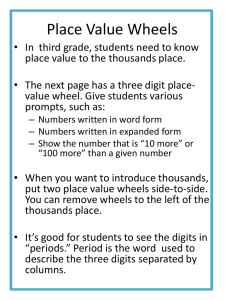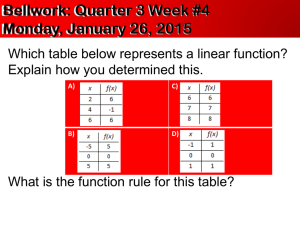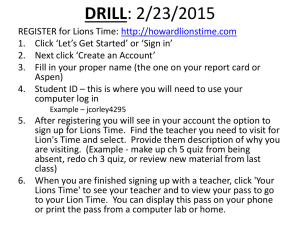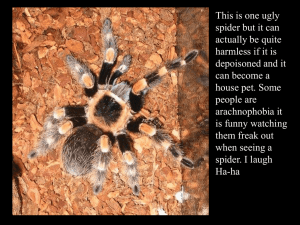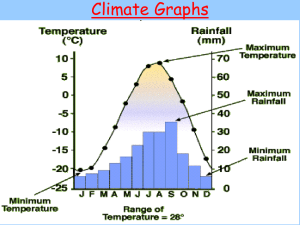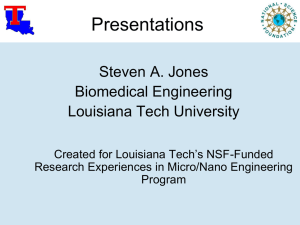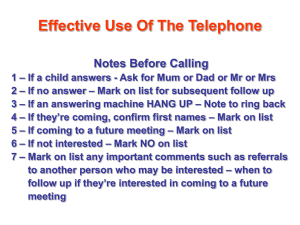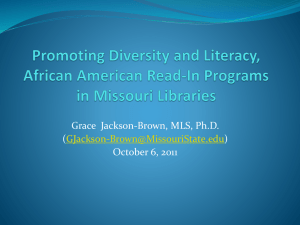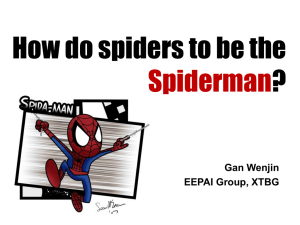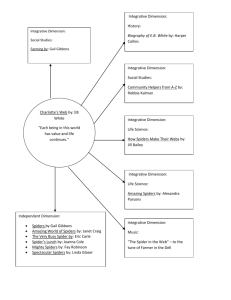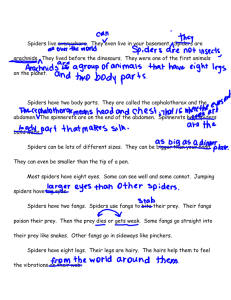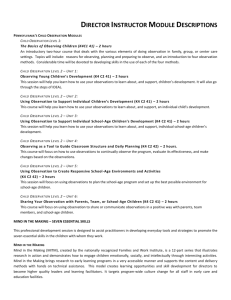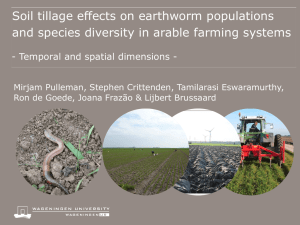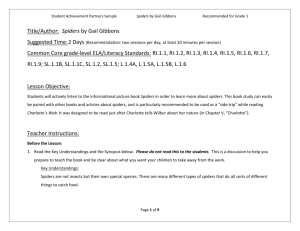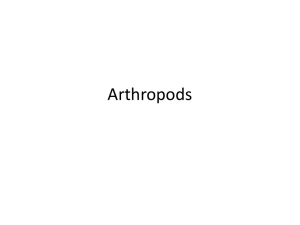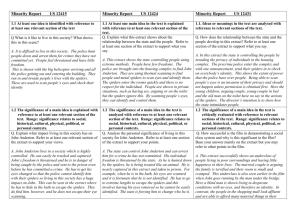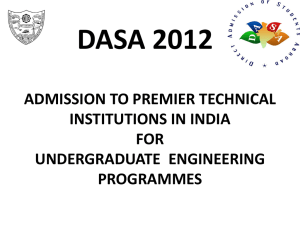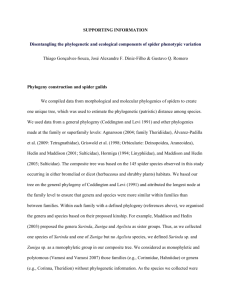File - cyndisettecerriportfolio
advertisement
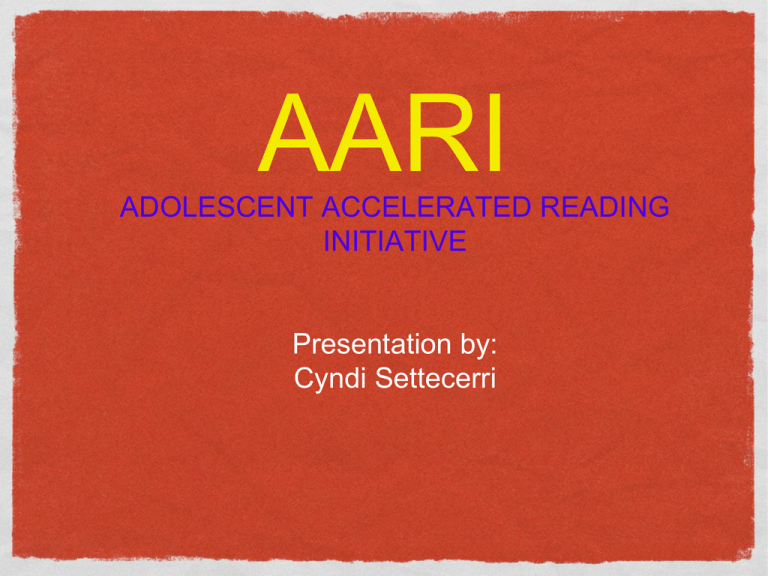
AARI ADOLESCENT ACCELERATED READING INITIATIVE Presentation by: Cyndi Settecerri What it is and what it isn’t AARI is NOT a new “trick” to add to your instructional toolbox AARI is a PARADIGM shift in reading instruction and metacognition for teachers as well as students EXPOSITORY TEXT STRUCTURES working through a text BEFORE READING Identifying READER’S AIDS Help kids concentrate on the content in the book Teachers plan questions that focus on prereading and help kids work through the text for answers (unlike our previous prior knowledge instruction) REAder’s aids Look at Table of Contents What vocabulary is highlighted/italicized/bold? What are the clues for global structure? Look at pictures (captions?) Look at maps/graphs WORKING THROUGH TEXT DIRECT GUIDED READING Responsive teaching - scaffolding with one student until comprehension makes sense Inferential questioning - follow student’s response with another question QUESTIONING - QAR (question answer response) and QtA (question the author) Textual analysis through text structures (:( Building a reading community EXAMPLES (from “All kinds of wheels” text) Does the picture prove the text? Does the author give us a clue about which of these are wheels? Why would a train need many wheels? Do all wheels roll on the ground? Why does an airplane need wheels? text mapping after reading - text structure analysis BEAVERS RABBITS Introduct ion MOLES Some animals live undergrou nd Some animals live in the water Animal Homes FROGS Some animals live in the tops of trees Conclusi on EAGLES KOALAS What does research tell us? MOST IMPORTANTLY - Authors and readers communicate through text (focus is ON THE TEXT) Curriculum theory tells us that more learnable text: presents important domain content, takes developmental level of learners into account, presents lots of examples of the important content Research suggests these features for comprehensible text: well organized, pattern is signaled, content connects the new to the known, text is interesting to readers AARI - TEACHING APPROACH Variety and range of QUESTIONS Scaffolding with a student until they GET IT! Rephrasing and plenty of wait time Questions BUILT ON each other Cognitive TENSION is good! Distinguish between EXTENSION and INFERENCE QUESTIONS Bringing the STRATEGY to the surface - making concrete the THINKING PROCESS Text structures - graphs Line Topical Net Matrix Topical Net for Lions book baby lions habitat activity LIONS reproduct ion hunters protectio n groups Matrix for SPIDERS Book Color Tarantulas Jumping Spiders Trap-door Spiders Size Biggest of all NIT NIT Hunt / Prey Kills with sharp fangs Shed long hairs to poison their prey Jumps to sneak up on insects Legs used for jumping Make silk in tunnel Raises trap door at night Looks Like Hairy Short legs NIT TEXt structure - graphs Main Idea Linear String Falling Dominoes Text structure - graphs Supporting Details Main Idea Argument Hierarchy HIerarchy for Animals in Danger book Animals in Danger Mammals Beluga Whales Mountain Gorillas Giant Pandas African Elephants Birds Hyacinth Macaws Snow Leopards Spotted Owls Bald Eagles Reptiles Insects Spiders Turtles American Alligators Komodo Dragons Copper Butterflies Karner Blue Butterflies Tarantulas text structure - graphs Branching Tree Any structural pattern can be global (the overall structure of a text) or a local sub-structure (an internal rhetorical within the global structure) RTI - Tier 3 intensive intervention focused on closing the gap 4-5 days a week (45 minute sessions) Assessment through QRI @ beginning, middle and end of 20 weeks 3-5 students in a group Students are grouped by reading level not grade level Classroom teacher support is CRUCIAL for transition back to textbooks Inferential questions (teacher “talks” with these types of questions) Gradual release of responsibility Teach text structures - aim for high level of thinking Walk through the textbook Look at textbook for the clues to global structure of the chapters as well as the entire textbook Look for places in the text where you need to fill in background knowledge Identify 2 or 3 major concepts that you would like your students to study WHAT PARTS OF THE TEXT WILL I USE TO ACCOMPLISH THIS?? Questions?????
